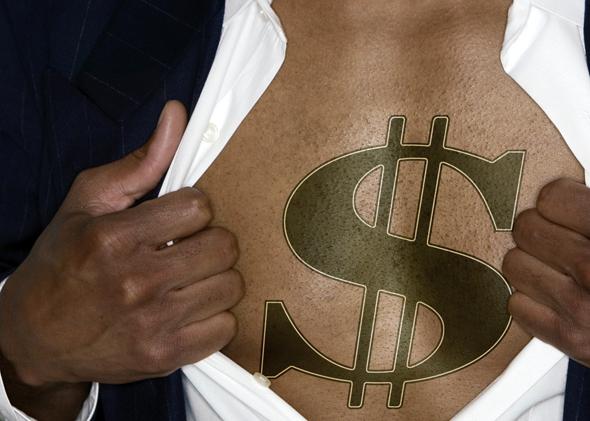In the early 1950s, the accomplished poet and professor Samuel Steward—protégé of Gertrude Stein, contemporary of Thomas Mann and Thornton Wilder—gave up the relative comfort of ivy and academia to become, among other things, mid-century America’s premiere tattoo artist. As recounted in Justin Spring’s magnificent biography Secret Historian, Stewart, now known as Doc Sparrow, became the Hells Angels’ official tattooist and operated parlors where outlaws could trade sex for ink. As a mentor to Ed Hardy and others, Stewart as much as anyone propagated the idea that tattoos could be simultaneously fine art, rebellion, self-expression, and tribal affiliation.
Doc Sparrow might not recognize today’s tattoo customers, among whom Meghan McCain can complicate her Republican identity by getting inked; the late Joan Rivers could complicate her Jewish identity by getting a Torah-prohibited tattoo of “6M” on her arm (signifying the number of Jews murdered in the Holocaust); and a onetime member of the Barney ensemble cast named Demi Lovato can complicate her child-star identity by covering her adult body with dozens of designs.
The numbers might surprise Doc Sparrow, too. In 2012, America had some 15,000 parlors in operation, with overall industry revenue of $2.3 billion. In 2013, a Pew study estimated that the number of parlors had grown to 21,000. This spring, Fox News—no friend to the counterculture—found that 1 in 5 Americans have been inked, and since 2007 the number of those with two or more tattoos has more than doubled.
Even what can be considered a tattoo is changing: Ink may soon communicate not just one’s aesthetics and pain threshold, but medical information such as blood sugar levels; tattoos—or temporary ones, at least—can even unlock your smartphone. In a way, all tattoos are temporary now: Laser and other cosmetic surgeries have undergone enormous technological advances, reducing the complications and costs associated with tattoo removal. As a result, the American Society for Dermatologic Surgery reports that the number of removal treatments rose 52 percent between 2012 and 2013.
All evidence suggests that a tattoo parlor might be just the thing for entrepenuers with nerves as steady as their hands. As with barber shops and other aethestician salons, artists generally rent their chairs from the owner and split the profits.* This framework therefore allows different entry points: An MBA could buy an existing shop, for example, and keep those artists who’ve developed strong followings; likewise, an MFA could start a shop on her own, bringing her own sketchbooks to life on human canvases. “Learning the basic techniques of the craft can be fairly fast—probably around a year if you are a quick study and have some natural inclination,” says Alex McWatt, founder of Three Kings Tattoo, who recently opened a second and third parlor in Manhattan and Brooklyn.
Once the capital and any necessary certification are in place (like hair stylists, tattoo artists must complete training and mentoring programs that vary state by state), tattoo parlors rely on the same magic commodity as most small businesses: word of mouth. “Most of the people I tattoo are repeat clients who then tell their friends,” says Jason Schroder of L.A.’s Incognito—or they tell Yelp.* The Pew study reports that 49 percent of tattooed people “think the reputation of the tattoo artist or tattoo studio is the most important factor” in choosing an inker.
And tattoo parlors are uniquely situated to thrive in social media. Because the end product is inherently visual, sites like Instagram and Pintrest are ready-made billboards. “People have become more educated on what’s a good tattoo,” says McWatt, “and have a greater desire to seek out the right artist and build a relationship with them.” The power of reputation can insure a successful parlors against factors as formidable as recessions. Clients might shift “from larger to smaller pieces, and multiple-session clients might space them out further because they are budgeting and prioritizing where they spend their money,” McWatt says, but “people value their tattoos as a form of self-expression, so we’ve been fortunate to withstand economic downturns.”
Local governments are also increasingly friendly to the tattoo industry, and not just in usual-suspect neighborhoods like Bushwick (in Brooklyn) and Echo Park (in Los Angeles). Parlors have become outposts of cool capitalism—one of the four horsemen of gentrification alongside a cute coffee shop, an antique store, and a farm-to-table restaurant. Cities such as Albany, hoping that trendy shops can hasten economic turnaround, are striking laws from the books that once prohibited parlors from opening. (Incognito’s Schroder says that L.A. county resisted the opening of his first shop in 1993 because of concerns about the type of clientele it would attract.)
As the areas and attitudes surrounding tattoo parlors have changed, the parlors themselves must change, too. “Clients now want more than just a tattoo from a shop,” McWatt says. “I see an opportunity to grow the experience into other areas of self-care, much like a luxury spa. For many people, getting tattooed becomes therapeutic.” A good tattoo parlor today requires its artists to have the lend-me-your-ear comeraderie of a good bartender alongside the ability to manifest clients’ good ideas and recast their bad ones into art they can live with.
It’s a service-economy gig—and even if the services rendered aren’t for everyone, the blockbuster figures argue that tattoo parlors make increasingly good business sense. As Schroder says—and Doc Sparrow would surely agree—“tattoo is the oldest human art form. It is not going anywhere.”
Correction, Oct. 2, 2014: This article originally misstated that tattoo artists generally rent their chairs to owners of tattoo parlors. They rent them from the owners. (Return.) It also misspelled tattoo artist Jason Schroder’s last name. (Return.)
